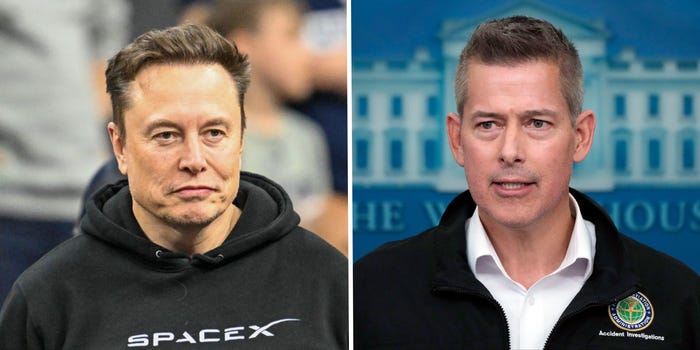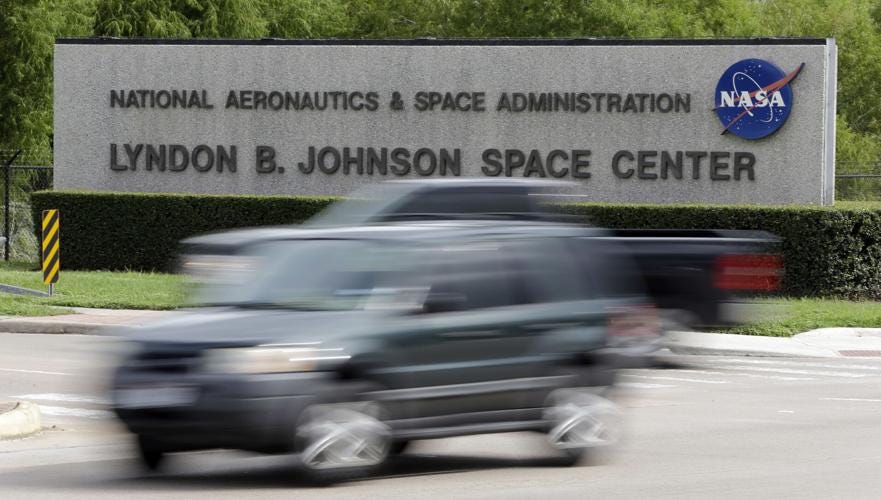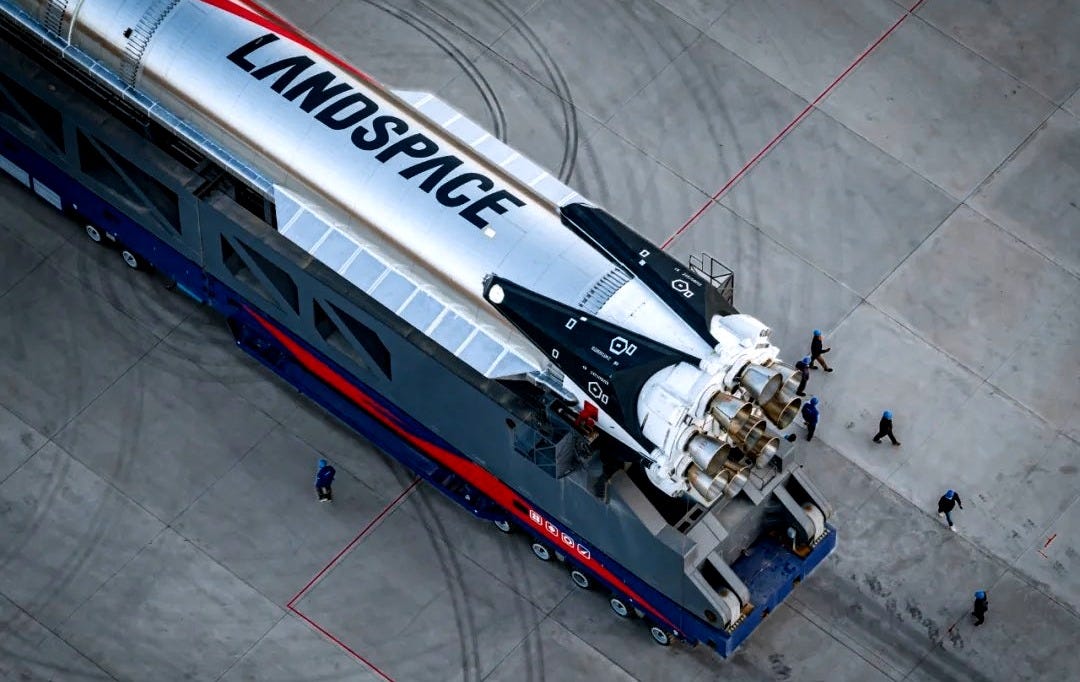This Week in Launch – #6
"Sean Dummy" tries to kill NASA, space weapons, and more
Welcome to the sixth issue of This Week in Launch, a roundup of space-related news posted at the end of each week.
Thank you for joining me! Let’s dive in.
Goodbye NASA?
The week immediately kicked into high gear Monday morning as acting NASA chief Sean Duffy went on national TV to announce he’s reopening SpaceX’s moon lander contract to competition.
Considering no other company has the track record or capability to build a lander within the 30-month target window, industry experts have been left baffled.
Elon Musk wasn’t happy. He responded with Trumpisms, calling the acting chief “Sean Dummy” (which he later amended to “Sean ‘Dangerously Stupid’ Dummy”), accusing him of plotting to “kill NASA” with a two-digit IQ, and replying with a “why are you gae?” gif under Duffy’s announcement post.
Insiders say Duffy’s actions are purely political.
According to folks with an eye on the situation, Jared Isaacman is on a good path to being re-nominated to lead NASA, the acting administrator doesn’t want to let go of power, and is increasing his lobbying to stop it. Which included shilling to legacy space, hence the announcement.
Duffy even went so far as to suggest that the beloved space agency merge with the Department of Transportation, which he currently leads.
“SpaceX is moving like lightning compared to the rest of the space industry. Moreover, Starship will end up doing the whole moon mission. Mark my words.”
– Elon Musk on X
Duffy has appeared to enjoy the limelight that comes with leading NASA. In the future, one source said, “Duffy wants to be president.” The NASA position has afforded him greater visibility, including television appearances, to expand his profile in a positive way. “He doesn’t want to give up the job,” the source added.
Per NASA admin, Trump will decide what happens next.
America’s Government is Gone Fishin’
Contributing to the worsening moon mission timeline — we have now entered week four of the U.S. government shutdown, and NASA is on life support.
The organization has already furloughed 15,000 of its 18,000 employees, and only critical tasks, such as ISS support, continue. Defense space programs are also now struggling with limited staff. With no budget agreement in sight, long-term cuts are becoming a growing concern.
Star Wars!
On Wednesday, Apex Space, a Los Angeles startup, announced it is funding its own $15 million project to develop a missile-intercepting satellite called Shadow (see video below).
Set to launch in June 2026, the satellite will test technology to counter hypersonic and ballistic missiles in orbit. Unlike traditional defense contractors, Apex — founded in 2022 and already valued at over a billion dollars — is moving fast to prove its concept, aiming to support the Pentagon’s missile defense goals.
Apex aims to mass-produce these guardians faster than rivals like Lockheed Martin, which plans its own test in 2028. This bold move positions the startup as a key player in space-based warfare and in Trump’s recently announced “Golden Dome” initiative.
China’s First Reusable Rocket Heads to Launch Pad
The global race for affordable access to space is intensifying.
On Wednesday, Chinese startup LandSpace announced its sleek, reusable Zhuque-3 rocket had recently passed a key test and will be ready for its first orbital flight as soon as November.
“They have added aspects of Starship, such as use of stainless steel and methalox, to a Falcon 9 architecture, which would enable it to beat Falcon 9,” wrote Elon Musk on X, “But Starship is in another league.”
Designed to land like SpaceX’s Falcon 9, Zhuque-3 represents a significant advance in China’s efforts to deliver affordable, frequent space missions and to reduce launch costs for Chinese megaconstellations.
European Space Giants (finally) Merge
On Wednesday, European space primes Airbus, Thales, and Leonardo announced that after multiple years of talks, they’ve signed an MoU to combine their space divisions into a €6.5 billion company to help the bloc better compete in the global market (namely, SpaceX).
However, analysts doubt it will rival SpaceX, saying, “Let’s not confuse consolidation with competitiveness. I don’t see this merger creating any competitive force against SpaceX at all. If there is to be a competitor to emerge from Europe, they are in the start-up ecosystem today.”
The deal, expected to be finalized by 2027, awaits EU approval. The group still needs to convince European regulators (and grumbling French unions) that they’re not engaging in anti-competitive behavior by combining.
“To me, it’s almost a joke when they say, ‘This is now something that can compete with SpaceX.’ And then in the next sentence, it says, ‘Oh, and we start in 2027.’ I mean, in two years, SpaceX has probably reinvented itself three times” — NewSpace’s Biedermann to Payload
That’s all for this week. Thank you for reading, and if you have not yet, please consider subscribing.
- David






With such an unpredictable government and a strong friendship between Musk and Trump, I think we could see a Chinese spacecraft on the moon before SpaceX does.